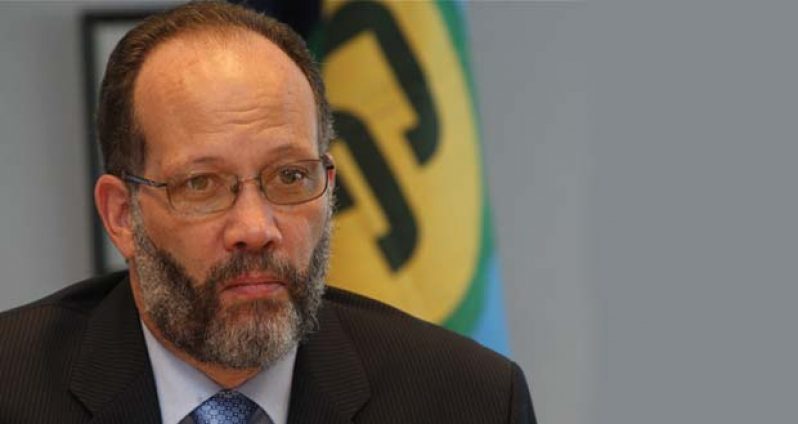By Rickey Singh
– in Bridgetown
–
CURRENTLY faced with the challenge of securing a realistic compromise with the Board of Control for Cricket in India (BCCI) over a threatened US$42 million lawsuit against the West Indies Cricket Board (WICB), the decision-makers of our Caribbean Community are, encouragingly, also revealing a new zeal to inspire popular confidence in the future of the region’s economic integration movement.At the core of new initiatives to stir region-wide optimism is the removal of lingering bureaucratic paralysis and other hurdles that continue to fester disenchantment in the critical area of free intra-regional movement for CARICOM citizens.
Free, or unrestricted movement of nationals across borders, has been and remains a core feature of the European Union.
CARICOM governments, organisations and nationals would do well to familiarise themselves with the policies and protocols governing cross-borders movement by European citizens for either private visit, do business, or the right to live and work.
This, more so, at a period when tensions are developing among some EU member states and the United Kingdom over increasing flows of European migrants into Britain, the former colonising power of the independent English-speaking states of our 15-member Caribbean Community (CARICOM).
One particularly irritating problem for CARICOM that continues to stick out like a sore thumb, is the recurring failure by governments of the Community to inform and sensitise citizens on the modalities of intra-regional free movement consistent with objectives and programmes of the still emerging single market and seamless economy (CSME).
Six CARICOM states had ceremonially signed at the Mona campus of the UWI on January 30, 2006 to adopt the CSME — Barbados, Belize Guyana, Jamaica, Suriname and Trinidad and Tobago. OECS member countries had pledged to do so by the end of that year.
A consensual inauguration date for the CSME remains elusive—after two projected dates had failed to materialise. Nevertheless, there has been a growing sense of increased awareness of the importance of the CSME in the face of the challenges posed by a widening globalised economy and the evident inter-dependence of CARICOM states for survival with dignity.
A fortnight ago, Secretary General of the 41-year-old Community, Irwin LaRocque, chose to further stir optimism – amid recurring pessimism in some quarters across the region on the way forward for CARICOM.
LaRocque’s pledge
Addressing the 48th Convocation and Graduation Ceremony of the University of Guyana, Mr LaRocque noted that the Revised Treaty of Chaguaramas provides for the free movement of skilled Community nationals, and the first category identified was that of university graduates.
“That’s why”, he assured, “the Community remains dedicated to achieving the objectives of the CARICOM Single Market and Economy, notably the free movement of skilled persons; of providers of services; of the self-employed and of those establishing businesses.”
Conscious of prevailing cynicism, LaRocque, nevertheless, admitted to being “acutely aware of the difficulties still being experienced at ports of entry in some of our member states by those who seek to exercise their rights to hassle-free intra-regional movement.
He has explained that there were categories of eligible citizens who also have the right to work and live in any participating state in addition to those eligible to the “right of an automatic stay of six months – subject only to circumscribed exceptions….”
He pointed to new educational initiatives soon to be announced to better inform CARICOM citizens on their rights in relation to free intra-regional movement. These would include online access of CARICOM skills certificates – currently a recurring problem – “in order to seek professional opportunities.
LaRocque disclosed that some 14,000 such certificates have already been issued to Community nationals. And, without attempting to minimise, or rationalise problems being encountered by nationals at some ports of entry, he observed that it should also be appreciated that with respect to hassle-free travel, “the vast majority of persons travel throughout our region every day without problems.”
We must look forward to the unfolding of Mr LaRocque’s promised new initiatives to sensitise Community nationals on their RIGHTS to free intra-regional travel without the recurring examples of unnecessary hassle, and worse, at some ports of entry.
CARICOM Secretary General stirs hope for ‘Free Movement’
SHARE THIS ARTICLE :
Facebook
Twitter
WhatsApp




.png)









